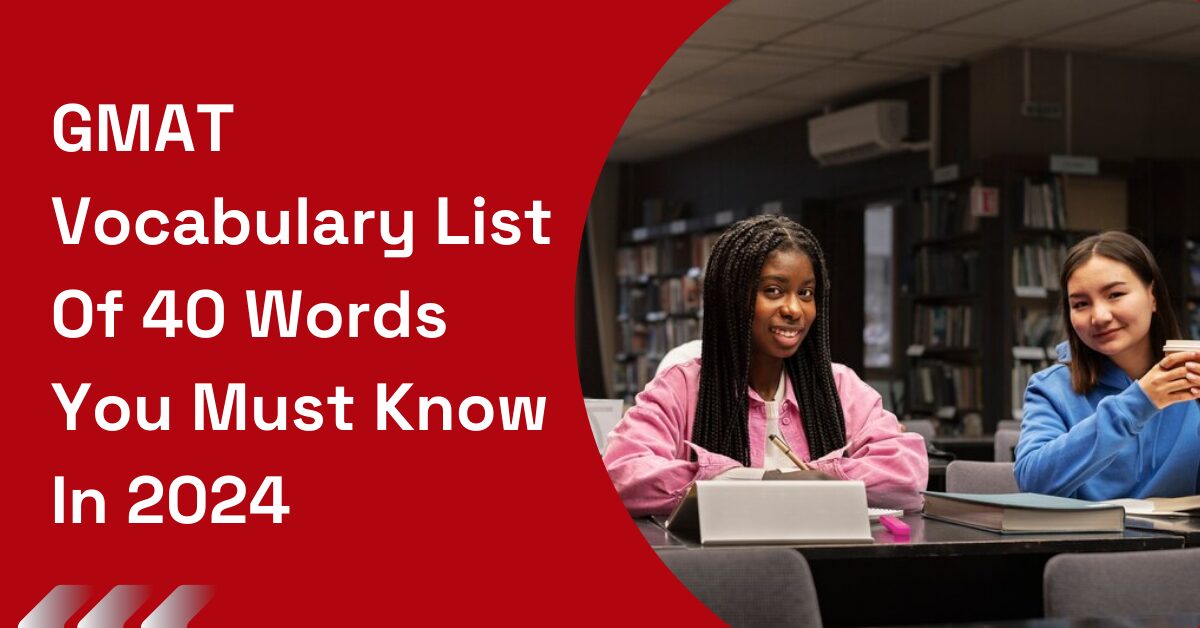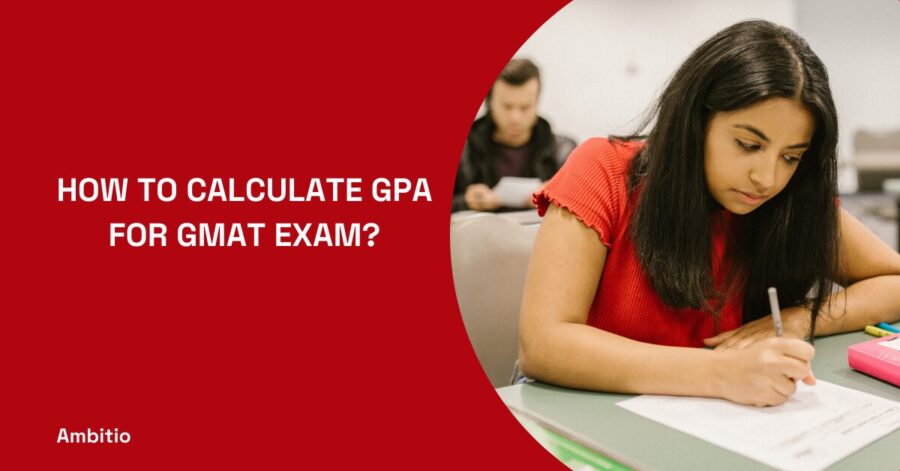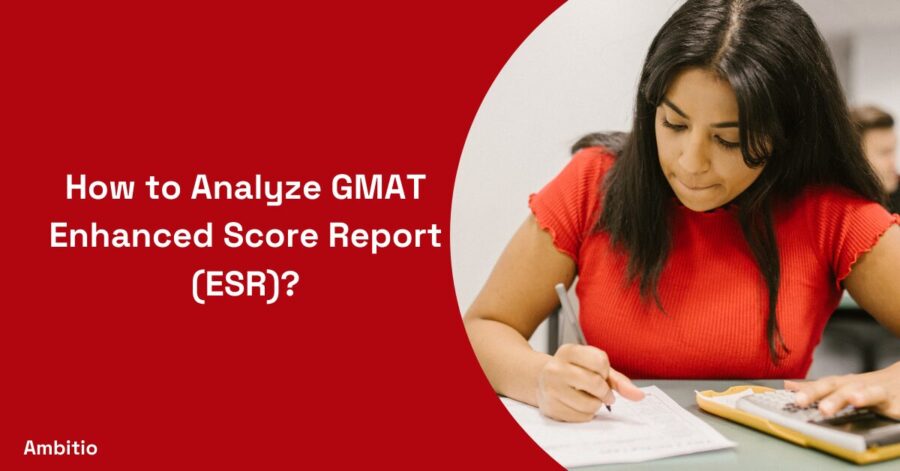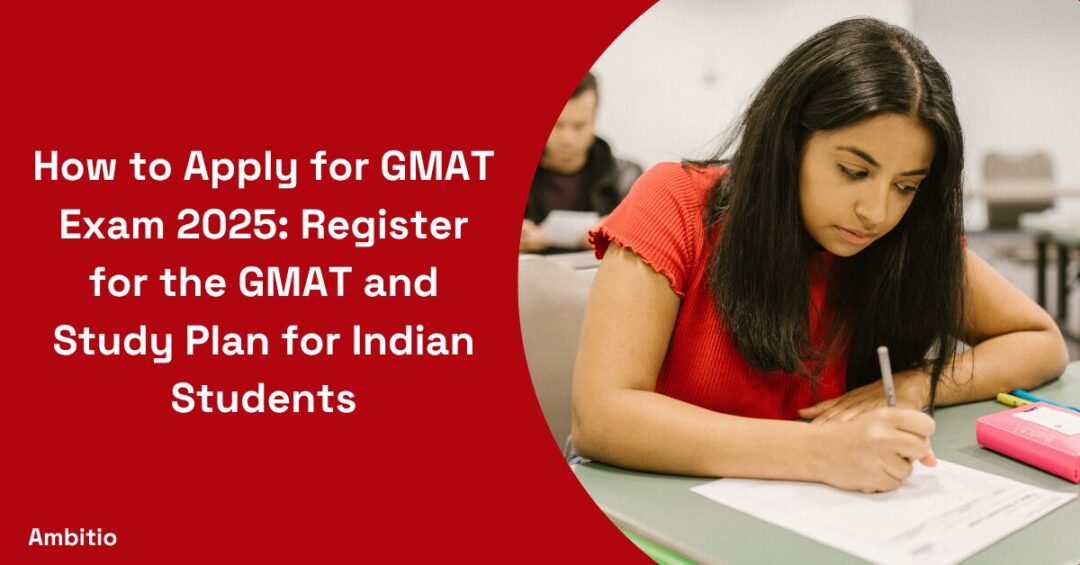11 September 2024
9 minutes read
GMAT Vocabulary List Of 40 Words You Must Know In 2024

Key Takeaways
- Knowing these 40 essential words can significantly improve your GMAT verbal score by enhancing comprehension and argument analysis.
- Focus on understanding how these words are used within GMAT questions, rather than just memorizing definitions.
- Regularly incorporate these words into your study routine to build a robust vocabulary tailored for the GMAT.
GMAT preparation often focuses heavily on quantitative skills, leaving many test-takers underprepared for the GMAT verbal section. This oversight can significantly impact max GMAT scores, as the verbal component carries equal weight. A key challenge lies in the exam’s sophisticated vocabulary, which can hinder comprehension and critical analysis, especially in reading comprehension and critical reasoning questions.”
“To address this, we’ve compiled a list of 40 must-know GMAT vocabulary words for 2024. This carefully curated selection isn’t just a random assortment of complex terms. Instead, it’s a strategic compilation of words frequently used in Verbal GMAT questions, particularly in contexts that test logical reasoning, argument analysis, and sentence structure. By mastering these essential words, test-takers can enhance their ability to understand complex passages, identify flawed arguments, and navigate tricky sentence correction questions more effectively.
What Methods Does The GMAT Test Use To Evaluate Vocabulary Skills?
The GMAT doesn’t directly test vocabulary through isolated word definitions or synonyms. Instead, it assesses vocabulary skills contextually within the verbal section’s three main components: Reading Comprehension, Critical Reasoning, and Sentence Correction. This approach evaluates a test-taker’s ability to understand and apply sophisticated vocabulary in practical, business-oriented scenarios.
In Reading Comprehension, complex passages often contain advanced vocabulary, testing comprehension and inference skills. Critical Reasoning questions frequently use nuanced language to present arguments, requiring a strong grasp of words that express logical relationships. Sentence Correction GMAT questions assess vocabulary indirectly by asking test-takers to identify the most appropriate and precise word choices in a given context.

This integrated approach ensures that vocabulary knowledge is evaluated as part of overall verbal reasoning and communication skills, aligning with the GMAT’s goal of predicting success in the top business schools in the USA.
40 GMAT Vocabulary Words You Must Know About
Do you know the right vocabulary for the GMAT is crucial, not just for boosting your score, but also for understanding the questions more clearly and responding with precision. So, here are 40 GMAT vocabulary words that can help you in your GMAT exam:
- Mitigate: used to describe reducing the severity of something. In GMAT, it often appears in critical reasoning questions about business strategies or environmental impact reduction.
- Example: The company’s new policies helped mitigate the economic downturn’s effects.
- Corroborate: used in critical reasoning to support or confirm evidence. It frequently appears in questions asking to strengthen arguments or evaluate the reliability of information presented.
- Example: The witness’s testimony corroborated the defendant’s alibi.
- Paradox: often used in critical reasoning questions to describe seemingly contradictory situations. GMAT uses this to test a candidate’s ability to reconcile conflicting information.
- Example: The paradox of increased profits despite declining sales intrigued analysts.
- Ambiguous: used to describe unclear or vague language. In GMAT, it’s common in sentence correction questions where clarity and precision of language are being tested.
- Example: The ambiguous contract terms led to disagreements between parties.
- Analogous: used to compare similar situations or concepts. GMAT employs this in reading comprehension and critical reasoning to test understanding of relationships between different ideas.
- Example: The structure of an atom is analogous to our solar system.
- Pragmatic: describes a practical approach, often used in business contexts. In GMAT, it’s frequently seen in passages about management strategies or decision-making processes in complex business scenarios.
- Example: The CEO’s pragmatic decision to cut costs improved the company’s finances.
- Anomaly: refers to something that deviates from the norm. GMAT uses this term in questions requiring candidates to identify or explain unusual patterns or occurrences in data or situations.
- Example: The sudden spike in sales was an anomaly in the stable market.
- Paradigm: describes a standard model or pattern. It often appears in GMAT passages discussing shifts in business models, scientific theories, or societal norms.
- Example: The new technology represented a paradigm shift in data processing.
- Nuance: refers to subtle differences or distinctions. GMAT employs this word to test a candidate’s ability to perceive and understand fine details in complex arguments.
- Example: Understanding cultural nuances is crucial for international business.
- Juxtapose: used to compare or contrast ideas. In GMAT, it’s often seen in reading comprehension passages that present multiple viewpoints or conflicting information.
- Example: The report juxtaposed the company’s financial and environmental performance.
- Empirical: based on observation or experience rather than theory. GMAT uses this term in contexts related to research methodologies, data analysis, and evidence-based decision-making.
- Example: The study provided empirical evidence supporting the new drug’s effectiveness.
- Bolster: to support or strengthen an argument or position. It’s commonly used in critical reasoning questions where candidates must identify information that strengthens a claim.
- Example: The new data bolstered the company’s claim of market leadership.
- Eschew: to deliberately avoid or abstain from something. GMAT may use this in passages discussing strategic decisions shifts in business practices or societal trends.
- Example: The company decided to eschew traditional advertising for social media.
- Perfunctory: done without real interest, feeling, or effort. This word often appears in GMAT to describe actions or processes that are carried out with minimal effort or engagement.
- Example: The manager gave a perfunctory nod to the proposal without consideration.
- Precipitate: to cause something to happen suddenly or unexpectedly. GMAT uses this term in contexts related to cause-and-effect relationships in business, economics, or social phenomena.
- Example: The CEO’s resignation precipitated a sharp decline in stock price.
- Elucidate: to make clear or explain. In GMAT, it’s often used in contexts where complex ideas or processes need to be clarified or explained in detail.
- Example: The professor elucidated the intricate economic theory for the class.
- Disparate: essentially different in kind; not allowing comparison. GMAT uses this term to describe contrasting elements or ideas, often in reading comprehension or critical reasoning questions.
- Example: The company struggled to merge its disparate corporate cultures.
- Substantiate: to support with proof or evidence. This word frequently appears in GMAT critical reasoning questions where candidates must evaluate the strength of arguments.
- Example: The research data substantiated the scientist’s revolutionary theory.
- Ameliorate: to make better or more tolerable. GMAT often uses this in passages about improvements in business processes, social conditions, or environmental issues.
- Example: The new policy aimed to ameliorate working conditions in factories.
- Contingent: dependent on or conditioned by something else. This term is used in GMAT to describe situations where outcomes are reliant on specific factors or circumstances.
- Example: The project’s success was contingent on securing additional funding.
- Exacerbate: to make worse or more severe. GMAT employs this word in contexts discussing negative trends or problems that are intensified by certain actions or conditions.
- Example: Poor communication exacerbated the tensions between departments.
- Inference: a conclusion drawn from evidence or reasoning. This is a crucial concept in GMAT reading comprehension and critical reasoning, testing candidates’ analytical skills.
- Example: Based on the sales data, we can make an inference about consumer preferences.
- Lucrative: producing a great deal of profit. GMAT often uses this term in business contexts to describe highly profitable ventures or opportunities.
- Example: The startup’s innovative app quickly became a lucrative business.
- Prudent: acting with or showing care and thought for the future. This word appears in GMAT passages about financial planning, risk management, and strategic decision-making.
- Example: The CFO made prudent investments to ensure long-term stability.
- Robust: strong and healthy; vigorous. In GMAT, it’s used to describe strong, resilient systems, economies, or arguments that withstand scrutiny or challenges.
- Example: The company’s robust financial performance impressed investors.
- Pervasive: spreading widely throughout an area or group of people. GMAT uses this term to describe widespread trends, influences, or practices in business, society, or technology.
- Example: Social media has become a pervasive force in modern marketing.
- Scrutinize: to examine or inspect closely and thoroughly. This word often appears in GMAT contexts related to analysis, evaluation, or critical examination of data, arguments, or policies.
- Example: The auditors scrutinized the company’s financial records for irregularities.
- Tenuous: very weak or slight; insubstantial. GMAT employs this term to describe weak arguments, unstable situations, or connections that lack strong supporting evidence.
- Example: The correlation between the variables proved to be tenuous at best.
- Consensus: general agreement. This word is used in GMAT passages discussing decision-making processes, negotiations, or shared opinions in various contexts.
- Example: After hours of debate, the board finally reached a consensus on the new strategy.
- Reciprocal: given or felt by each toward the other; mutual. GMAT uses this term to describe mutual relationships or actions, often in economic or interpersonal contexts.
- Example: The trade agreement established reciprocal benefits for both countries.
- Enigmatic: difficult to interpret or understand; mysterious. This word appears in GMAT to describe complex or puzzling situations that require careful analysis and interpretation.
- Example: The CEO’s enigmatic statement left analysts speculating about the company’s future.
- Ostensible: stated or appearing to be true, but not necessarily so. GMAT employs this term in critical reasoning questions to test candidates’ ability to distinguish appearance from reality.
- Example: The ostensible reason for the merger was efficiency, but many suspected other motives.
- Catalyst: a person or thing that precipitates an event. This word is used in GMAT to describe factors that trigger significant changes or developments in various scenarios.
- Example: The new technology acted as a catalyst for rapid industry transformation.
- Meticulous: showing great attention to detail; very careful and precise. GMAT uses this term to describe thorough approaches to problem-solving, research, or quality control in various fields.
- Example: The scientist’s meticulous research methodology led to groundbreaking discoveries.
- Dilemma: a situation in which a difficult choice has to be made. This word often appears in GMAT critical reasoning questions that present complex decision-making scenarios for analysis.
- Example: The company faced a dilemma between cost-cutting and maintaining product quality.
- Ubiquitous: present, appearing, or found everywhere. GMAT uses this term to describe widespread phenomena, technologies, or practices that have become commonplace in business or society.
- Example: Smartphones have become ubiquitous in modern urban life.
- Superfluous: unnecessary, especially through being more than enough. This word appears in GMAT to describe excess or redundancy, often in contexts related to efficiency or clear communication.
- Example: The manager removed superfluous details from the report for clarity.
- Dichotomy: a division or contrast between two things that are opposed. GMAT employs this term to present contrasting ideas or concepts, often in reading comprehension or critical reasoning questions.
- Example: The study revealed a clear dichotomy between urban and rural consumer behavior.
- Quintessential: representing the most perfect or typical example of a quality or class. This word is used in GMAT to describe archetypal examples or embodiments of particular concepts or characteristics.
- Example: The company’s innovative approach made it the quintessential tech startup.
- Circumvent: find a way around an obstacle. GMAT uses this term in contexts related to problem-solving, strategic planning, or overcoming challenges in various scenarios.
- Example: The new software allowed users to circumvent traditional security measures.
6 Tips To Study GMAT Vocab Effectively
To be honest, the challenge lies not just in memorizing words, but in understanding their nuanced usage within the purpose of the GMAT. Whether you’re a native English speaker looking to refine your skills or a non-native speaker aiming to bridge the language gap, effective vocabulary study can be a game-changer for your average GMAT scores. Here are six strategic tips that can help you build and retain the essential vocabulary needed to excel in the GMAT verbal section:

Context is Key
Focus on understanding words in the context of the GMAT. The exam doesn’t test vocabulary directly, but rather your ability to comprehend and analyze complex passages. Practice with real GMAT questions, especially in reading comprehension and critical reasoning sections, to see how words are used in arguments, assertions, and paradoxes that may seem contradictory or don’t make sense at first glance.
Create GMAT Vocabulary Flashcards
Develop a comprehensive list of essential words for the GMAT. Include synonyms, common phrases, and example sentences. For instance, learn that ‘faulty’ is a synonym for ‘flawed’ or ‘invalid’ when describing an argument. This method helps you build vocabulary specifically tailored to the GMAT exam.
Daily Practice
Commit to learning new words every day. Even if you’re a native English speaker, expanding your vocabulary is crucial for acing the verbal section. Read high-quality sources like magazines and newspapers to encounter GMAT-level words in various contexts. This habit will help you understand reading comprehension passages more easily on test day.
Focus on High-Impact Words
Prioritize words frequently used in GMAT questions. For example, understand phrases like ‘corroborating evidence’ often used in critical reasoning questions. Learn words related to logical reasoning, as you’ll be asked about the assumptions of various arguments frequently in these questions.
Use Official GMAT Materials
Practice with real GMAT questions from official sources. This ensures you’re studying relevant vocab words and seeing them in the context of actual GMAT English usage. Pay special attention to sentence correction questions and how vocabulary choices affect meaning and grammar.
Analyze Your Weaknesses
Regularly assess your strengths and weaknesses in GMAT vocabulary. Focus on areas where you struggle, whether it’s business terms, academic language, or words commonly used in logical arguments. Remember, the GMAT does not test obscure words, but rather your ability to understand and use high-school and college-level English vocabulary effectively in complex passages.
Conclusion
At last, preparing for the GMAT often means a heavy focus on quantitative skills, but the verbal section is equally important. Many test-takers find themselves underprepared for the sophisticated vocabulary used in the verbal section, impacting their overall scores. To help you ace this section, we’ve compiled a list of 40 must-know GMAT vocabulary words for 2024.
By mastering these essential words, you can enhance your ability to understand complex passages, identify flawed arguments, and navigate tricky sentence correction questions more effectively.
Maximize your GMAT potential and aim for the top with Ambitio’s comprehensive prep tools. Our approach focuses on enhancing your strengths and addressing your weaknesses, providing you with the skills and confidence needed to score higher and reach your MBA goals.
FAQs
How Do I Register for the GMAT?
You can register for the GMAT at mba.com, the official GMAT website. After creating an account, you can select your testing date, time, and location by clicking on “Register for the GMAT” under “The GMAT Exam” on the main page. You can also register by phone, but there is a $10 phone service fee.
How Much Does the GMAT Cost?
How Often Can I Take the GMAT?
Can I Reschedule a GMAT Appointment?
How Should I Prepare for the GMAT?
Where Can I Find Prep Material for the GMAT?
The best source is the Official GMATPrep Software, which includes practice tests, questions, and a math review. Other official materials include the GMATPrep Exam Collection, Question Pack, and Integrated Reasoning Prep Tool.

You can study at top universities worldwide!
Get expert tips and tricks to get into top universities with a free expert session.
Book Your Free 30-Minute Session Now! Book a call now




























